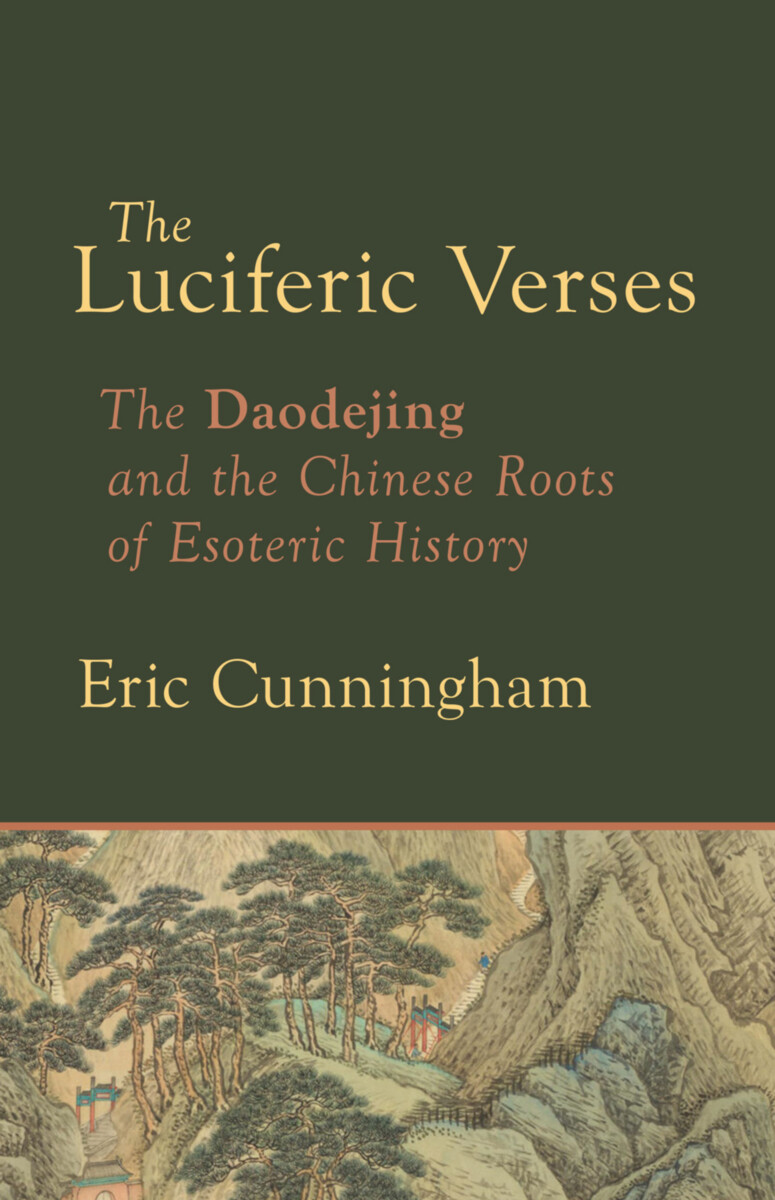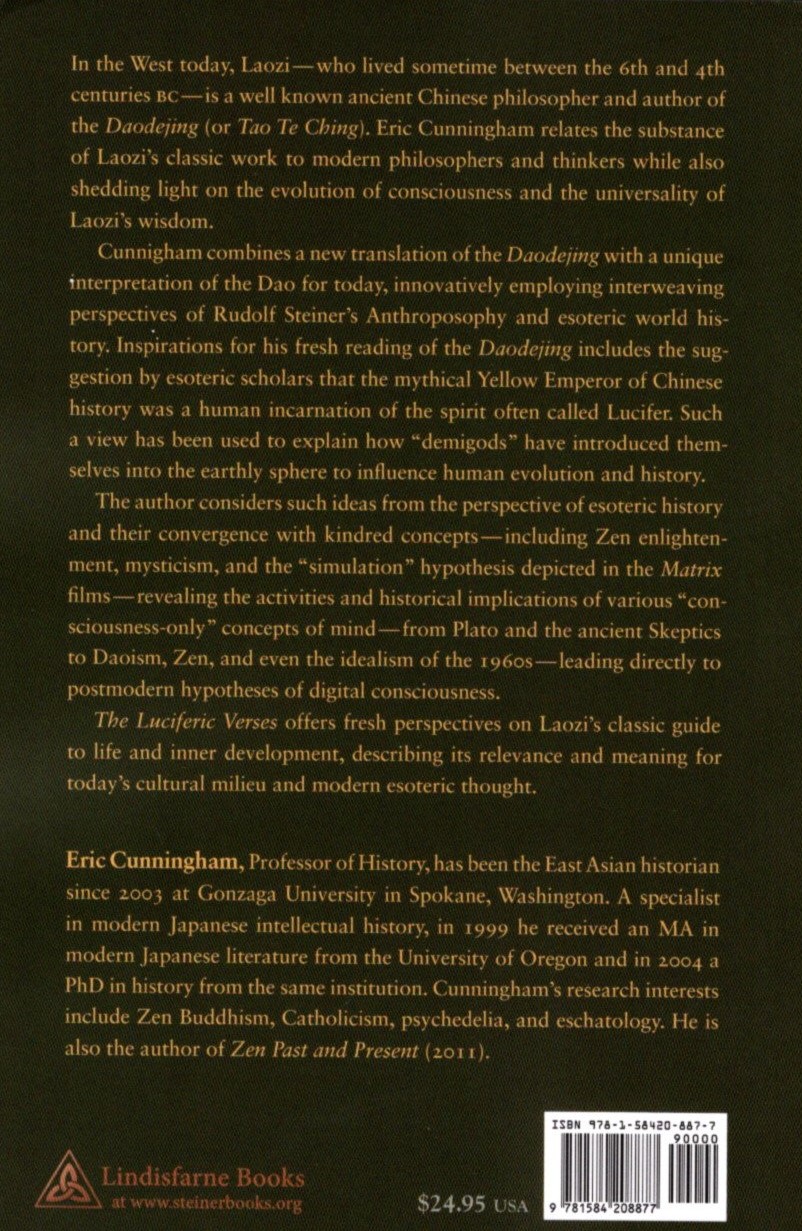The Luciferic Verses: The Daodejing and the Chinese Roots of Esoteric History
“It is a significant, momentous fact that in the third millennium before Christ, an incarnation of Lucifer in the flesh actually took place in the east of Asia. And from this incarnation of Lucifer in the flesh—for this being became a teacher—there went forth what is described as the pre-Christian, pagan culture that still survived in the gnosis of the earliest Christian centuries.” —Rudolf Steiner (The Influences of Lucifer and Ahriman)
In the West today, Laozi—who lived sometime between the 6th and 4th centuries BC—is perhaps the best-known (along with Confucius) ancient Chinese philosopher, owing to numerous modern renderings of his Daodejing (or Tao Te Ching). Eric Cunningham relates the substance of Laozi’s classic work to modern philosophers and thinkers—especially Rudolf Steiner and his esoteric cosmology and philosophy, drawing significant and surprising parallels and contrasts with regard to Steiner’s modern path of inner development and to aspects of popular culture. In doing so, he also sheds light on the evolution of consciousness and the universality of Laozi’s wisdom of more than two millennia ago.
Cunningham combines a new translation of the Chinese classic Daodejing with a unique interpretation of the Dao for today, innovatively employing perspectives of Rudolf Steiner’s Anthroposophy interwoven with esoteric world history. Inspirations for this singular reading of the Daodejing includes the suggestion by contemporary esoteric scholars that the mythical Yellow Emperor of Chinese history was a human incarnation of the spirit called Lucifer in the West. This argument has been used to explain the ways in which “demigods” have inserted themselves into the earthly sphere to affect human evolution and history. This theory resonates with certain readings of Genesis 6 and the idea that fallen angels have penetrated the human world and promoted the establishment of ruling classes and elite bloodlines throughout history.
The Luciferic Verses considers such claims from the perspective of esoteric history. The author evaluates them on the basis of their convergence with kindred concepts—including Zen enlightenment, mysticism, and the “simulation” hypothesis depicted in the Matrix films—revealing the activities and historical implications of Gnosticism. He makes a bold case for this common thread in various “consciousness-only” concepts of mind—from Plato and the ancient Skeptics to Daoism, Zen, and even the idealism of the 1960s—leading directly to postmodern hypotheses of digital consciousness.
Today, philosophers are exploring such topics as virtual reality and digital simulation as new ways of discussing the contours of reality suggested in the Daodejing. Rather than leading us to a more humanistic vision of reality, as the Daoist scholars traditionally maintain, this theory of mind might be the root of a systematic anti-humanist impulse that has operated throughout world history.
The Luciferic Verses offers fresh perspectives on Laoze’s classic guide to life and inner development, describing its relevance and meaning for today’s cultural milieu and modern esoteric thought.
C O N T E N T S:
Introduction: A Journey of a Thousand Miles
1. The Way, the Master, and the Text
2. An Outline of Esoteric History
3. Lucifer’s Incarnation in China
4. The Dao of Ahriman
5. The Eternal Dao
6. The Daodejing of Laozi
Appendix: The Evolutionary Path of the Cosmos
Based on the Cosmology of Rudolf Steiner
Bibliography
Index for Chapters 1 to 5
Index for Chapter 6: The Daodejing
About the Author
Eric Cunningham, Professor of History, has been the East Asian historian since 2003 at Gonzaga University in Spokane, Washington. A specialist in modern Japanese intellectual history, in 1999 he received an MA in modern Japanese literature from the University of Oregon and in 2004 a PhD in history from the same institution. Cunningham’s research interests include Japanese intellectual, Zen Buddhism, Catholicism, psychedelia, and eschatology. He is also the author of Zen Past and Present (2011).












Reviews
There are no reviews yet